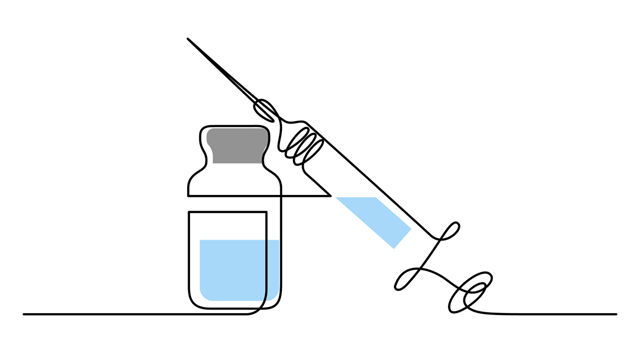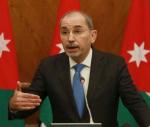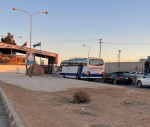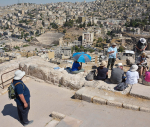You are here
Iraq orders vaccines, imposes travel bans amid COVID-19 'new strain'
By AFP - Dec 23,2020 - Last updated at Dec 23,2020
BAGHDAD — Iraq's government ordered new coronavirus restrictions including border closures on Tuesday, even as it signs a preliminary deal to receive 1.5 million doses of the Pfizer-BioNTech vaccines.
Following its weekly meeting, the cabinet said it was taking new measures "following the emergence of a new strain of the coronavirus" that has spread rapidly in the UK and also been detected in other countries.
It announced land borders will close and travel to the UK, South Africa, Australia, Denmark, The Netherlands, Belgium, Iran and Japan will be stopped immediately.
Non-Iraqi citizens currently in those countries will not be allowed to travel to Iraq, although Iraqis returning from those destinations will be permitted to come home, subject to a mandatory 14-day quarantine.
The Cabinet also announced all malls and other public gathering places would be closed for two weeks starting on December 24.
Iraq has been among the hardest-hit by coronavirus in the Middle East, with more than 580,000 reported cases, although newly discovered cases have dropped dramatically in recent weeks.
Late Monday, health ministry spokesman Seif Al Badr announced Iraq had "formally signed a preliminary deal with Pfizer" to bring in 1.5 million vaccine doses in several stages in early 2021.
Each person requires two injections of the vaccine so the order will cover just 750,000 of Iraq's 40 million people, with troops and the elderly prioritised for vaccinations.
President Barham Saleh has said Iraq aims to provide the jab for free to its citizens.
Iraq's Cabinet said on Tuesday that the finance ministry had set aside $3 million as an advance payment to Pfizer-BioNTech and had secured the remaining $12 million for the full delivery.
Western officials in Iraq told AFP that Washington had been urging Baghdad to choose Pfizer-BioNTech over other options.
Pfizer's vaccine must be stored at -70ºC, a temperature much lower than standard freezers and which forced the company to develop special containers for transport.
Iraq is one of the hottest countries in the world and has a dilapidated power generation network that results in daily cuts to mains supply.
"The issues of transportation and financial transactions are still being worked out," Badr said, adding that Iraq had the necessary equipment to safely distribute the vaccine.
He said Iraq was still in talks to receive more vaccines through Covax, a worldwide network created to ensure equitable access to COVID-19 vaccines.
Iraq has committed $170 million to be among the first countries to receive the vaccine, according to the World Health Organisation.
The country has seen a remarkable reduction in COVID-19 cases and deaths in recent weeks even as testing ramps up.
On Tuesday, authorities said that out of nearly 39,000 tests, just 1,158 tested positive for COVID-19 and 15 people died over the preceding 24 hours.
The encouraging numbers come even as people across the country are wearing masks less and ignoring social distancing.
But Badr insisted the danger had not passed.
"A vaccine is not a magic solution," he told state media.
Related Articles
BAGHDAD — Iraq said on Saturday it has received 1.2 million doses of Pfizer-BioNTech's COVID-19 vaccine through the Covax sharing scheme, am
LONDON — Britain on Wednesday became the first country to approve a COVID-19 vaccine for general use, announcing a rollout of Pfizer-BioNTec
PARIS — France became the latest country on Tuesday to authorise new COVID-19 vaccines that have been updated to target Omicron subvariants


















